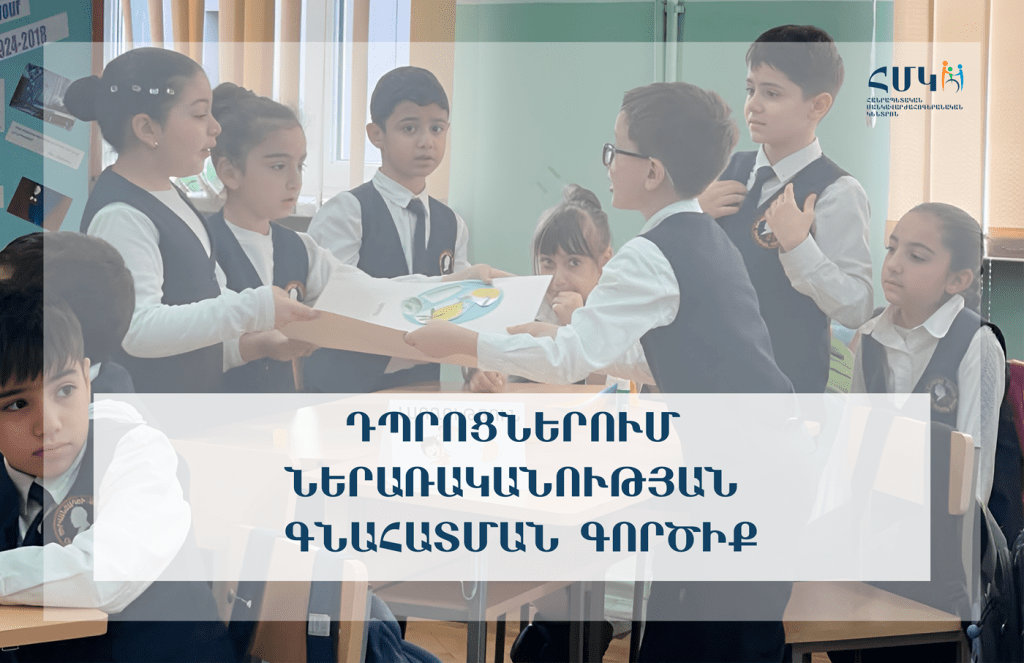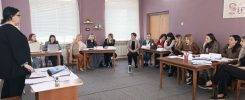
We value and appreciate the views and opinions of all participants involved in the educational process — students, parents, educators, school administrative staff, and other specialists — in ensuring inclusiveness. For this purpose, the Inclusion Assessment Toolkit in Schools has been developed, which is another achievement for all of us.
By Order N670-A2 of the Minister of Education, Science, Culture and Sports of the Republic of Armenia dated March 12, 2025, the “Inclusion Assessment Toolkit in Schools” developed by the Republican Pedagogical-Psychological Center within the framework of the “Promotion of Inclusive Equitable Quality Education for All in Armenia” project implemented by “Armenian Caritas” Benevolent NGO, has been approved for use.
The toolkit has been developed by the professional team of the Republican Pedagogical-Psychological Center with the financial support of “Armenian Caritas” Benevolent NGO.
The local and international experience in assessing the inclusiveness of the educational process in schools was studied in advance. Based on the findings of the studies, the expert group developed a toolkit for assessing the inclusiveness of the organization of the educational process in schools. The toolkit can be used for both internal and external assessment.
The application of the toolkit will provide the opportunity to conduct targeted research on the inclusiveness of the organization of the educational process in schools, revealing the views and opinions of all parties involved.
The toolkit assesses the process of organizing inclusive education through 6 main components:
- ✦ Accessible (physical) environment;
- ✦ Material and technical support necessary for the implementation of inclusive education;
- ✦ Teaching methods;
- ✦ Teacher training;
- ✦ Inclusive management;
- ✦ Attitudes and discrimination.
The toolkit includes 5 different questionnaires for administrative staff, teachers, parents, and students.
The Inclusion Assessment Toolkit in Schools is designed for the assessment of the inclusiveness of the educational process in general educational institutions, aiming to gather the views and opinions of all parties involved — students, parents, educators, school administrative staff, and other specialists — on various components of inclusiveness in the educational process.
The data obtained from the application of the toolkit can be used to improve, develop, and enhance the effectiveness of inclusive education in the Republic of Armenia, as well as help specific schools respond more effectively to the current demands they face.
20.03.2025


